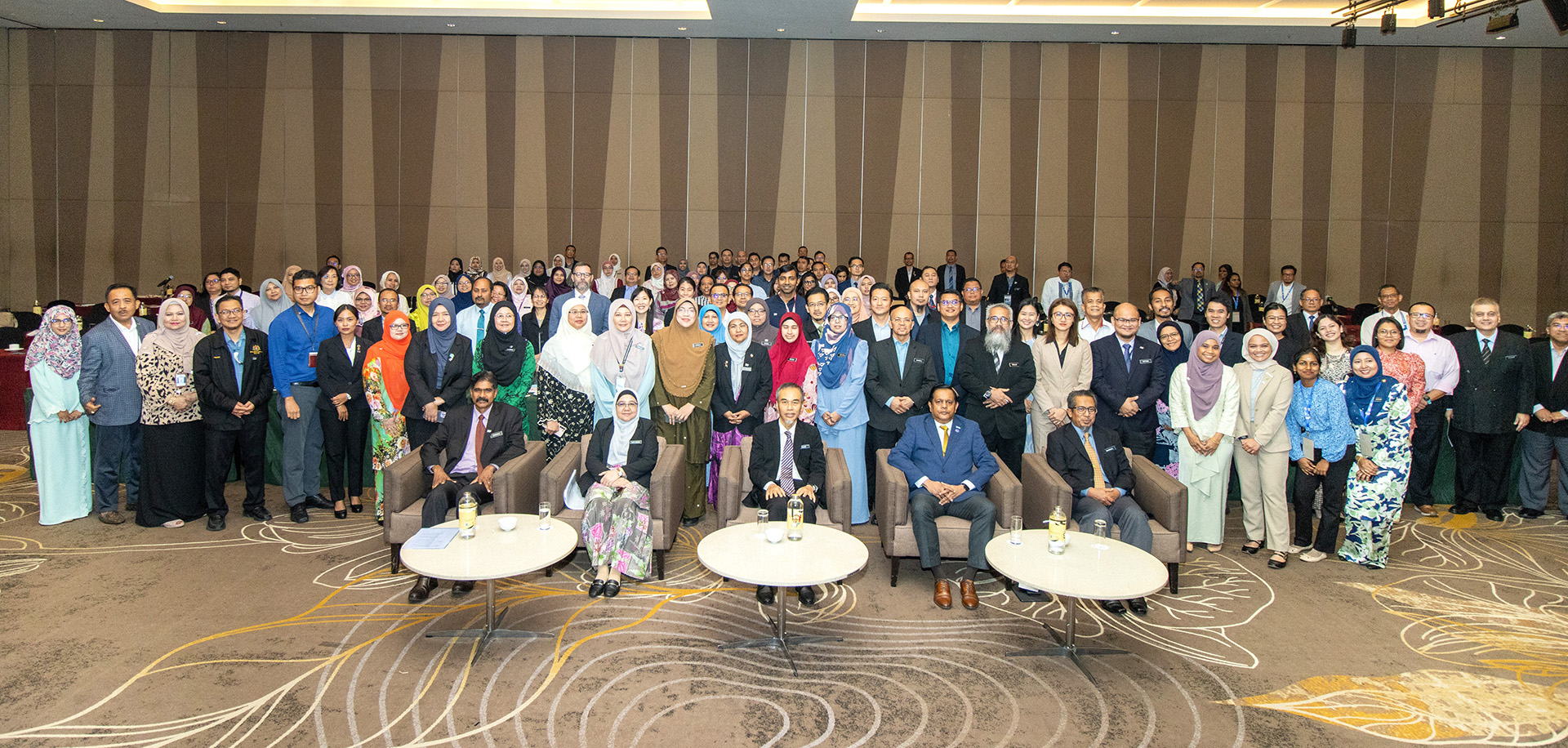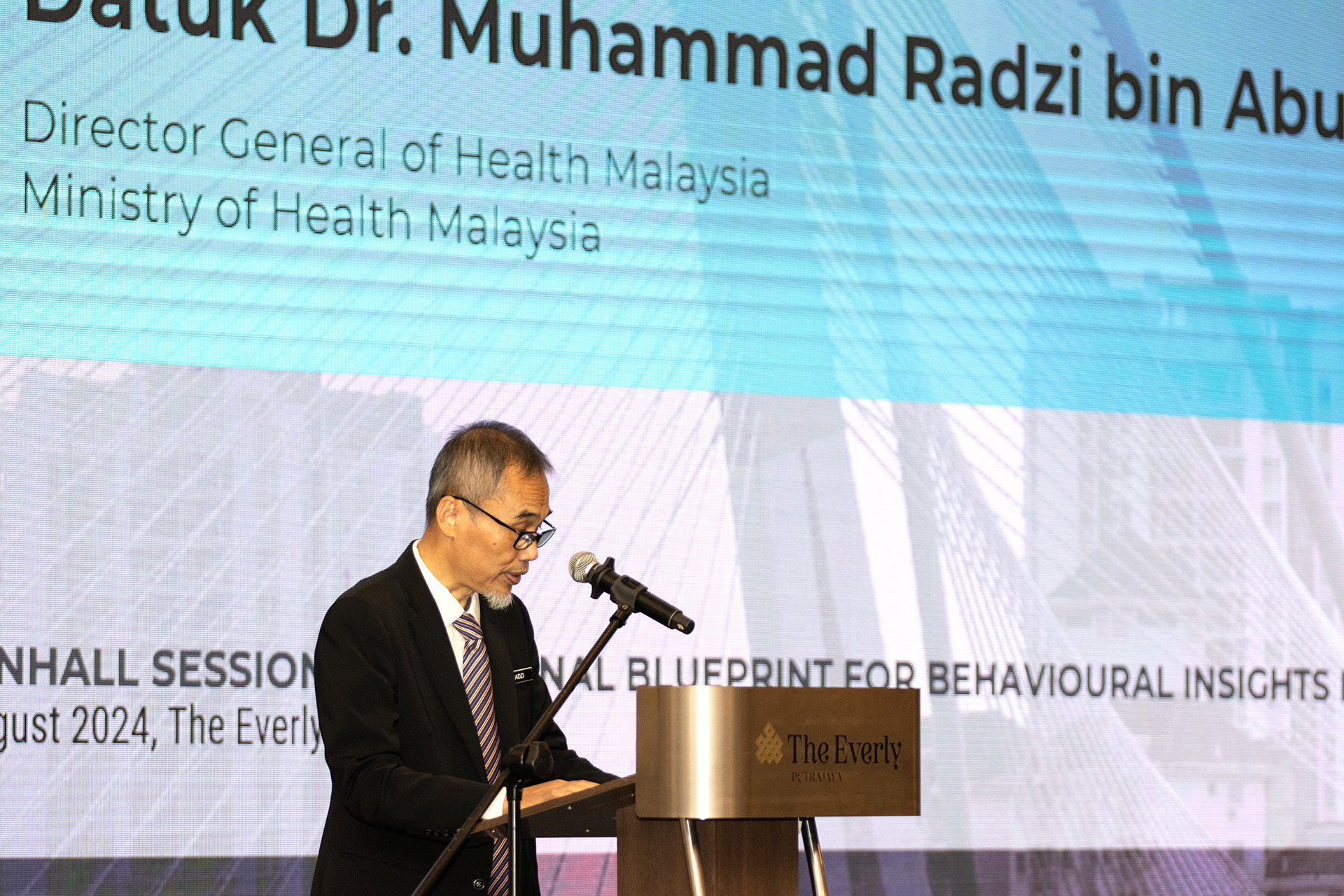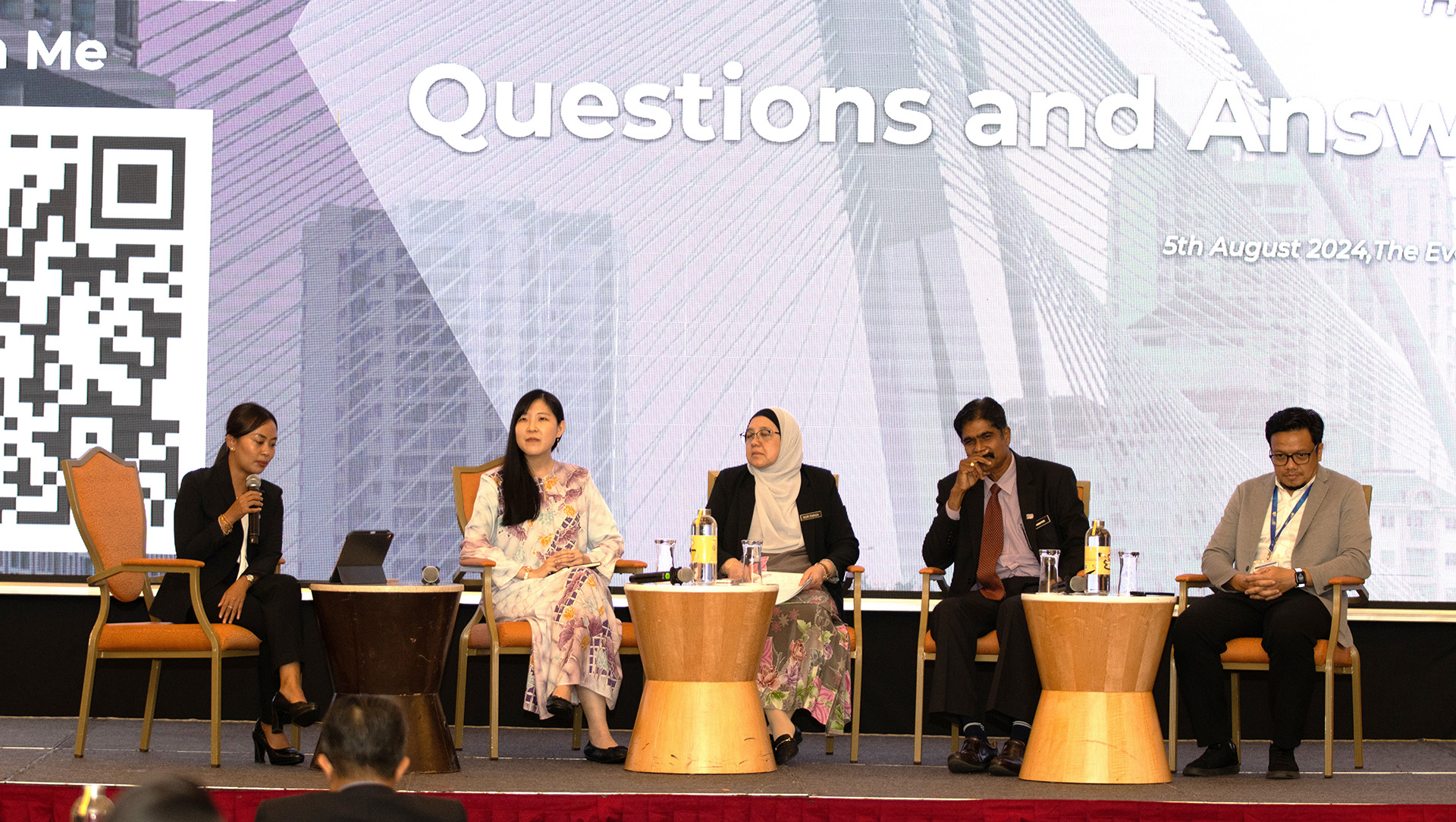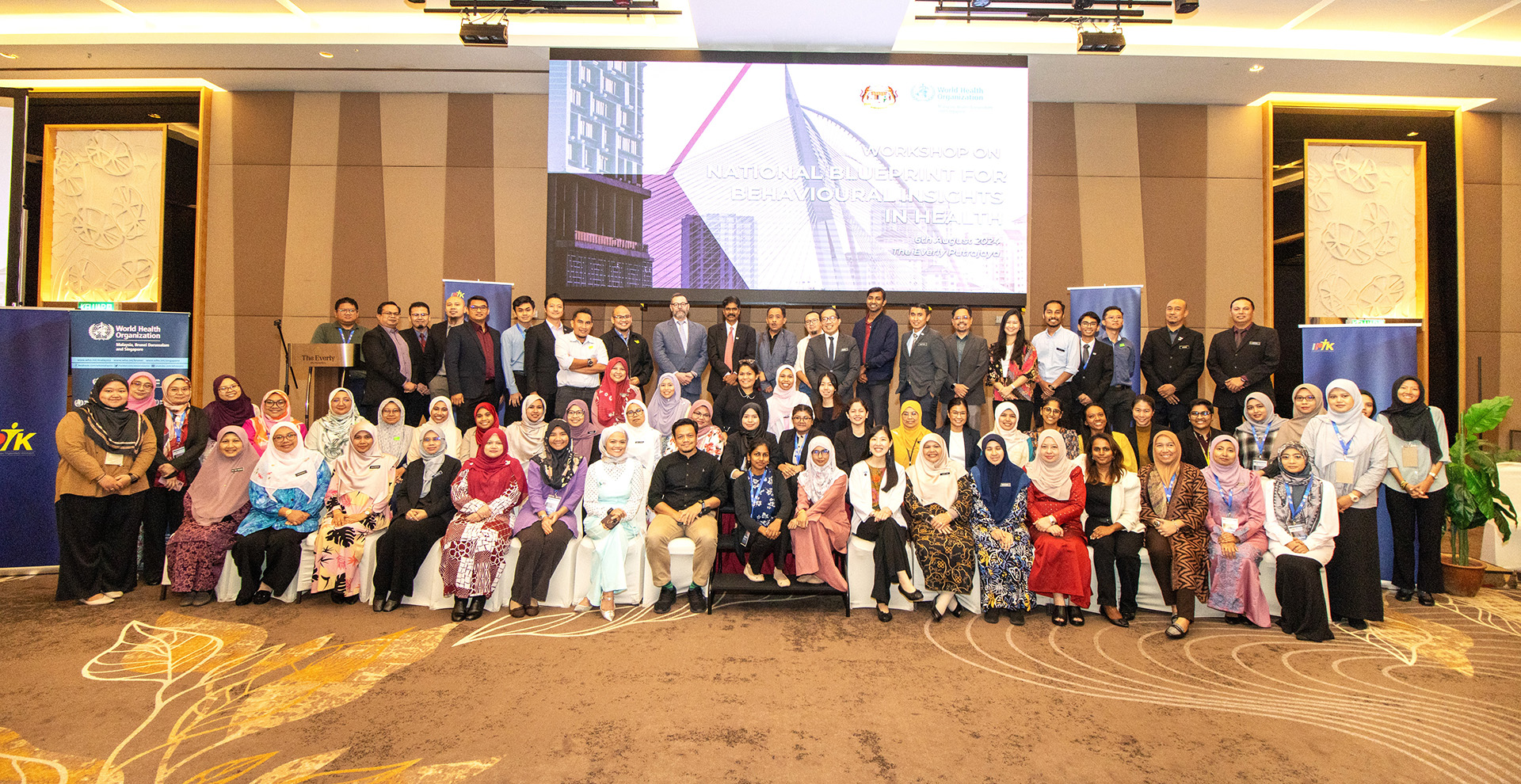Human behaviour significantly influences health outcomes. The Malaysia National Health & Morbidity Survey 20231 highlights some concerning statistics:
- 95% of adults do not consume enough fruits and vegetables daily.
- 1 in 3 adults are physically inactive.
- 1 in 5 adults use tobacco.
These modifiable behaviours substantially increase the risk of Non-Communicable Diseases (NCDs) among Malaysians, leading to poorer health outcomes.
To address these challenges, Malaysia is expanding its public health strategies by incorporating behavioural science through the development of the first National Blueprint for Behavioural Insights in Health. This blueprint that is currently being developed aims to enhance health outcomes by integrating behavioural science principles into the development of behaviourally-informed health policies and practices. The blueprint emphasizes a whole-of-nation approach to address behavioural factors at the individual and community levels that are shaped by economic, environmental and social determinants of health - as aligned with the WHO Resolution on ‘Behavioural Sciences for Better Health’, the Malaysia Health White Paper and the Malaysia National Health Agenda.
Sharing of Expertise: Townhall
As part of the blueprint’s development, the Institute for Health Behavioural Research (IHBR), Ministry of Health Malaysia (MOH), in collaboration with the World Health Organisation (WHO) Country Office, recently organized a town hall and a consultative workshop. 150 representatives from various ministries, international agencies and strategic partners participated in the sessions.

Representatives from MOH, WHO, various ministries, international agencies and others, participated in the recent Behavioural Insights town hall and consultative workshop. Photo credit: MOH
The town hall and consultative workshop aimed to review the vision and priority areas of the blueprint, and obtain feedback and consensus, to refine the proposed blueprint document.
Datuk Dr. Muhammad Radzi Abu Hassan, Director General of Health, MOH in his opening remarks said “In developing the National Blueprint for Behavioural Insights in Health, it is crucial that we move beyond just having a document. We must focus on actionable steps and practical implementation to truly make a difference in the health outcomes of Malaysians. This blueprint represents our collective commitment to nurture an informed and responsive health ecosystem for all Malaysians.”

Datuk Dr. Muhammad Radzi Abu Hassan, Director General of Health, MOH providing his opening remarks at the town hall. Photo credit: MOH
At the townhall, participants had the opportunity to engage with experts who have been involved in the growth of behavioural sciences in health in Malaysia. A panel consisting of Datuk Dr. Nor Fariza binti Ngah, Deputy Director General of Health (Research and Technical Support) MOH, Dr. Manimaran Krishnan, Director of IHBR MOH, Dr. Saiful Adli, Head of the Behavioural Insights Unit MOH and Liyann Ooi, Behavioural Insights Consultant of WHO Malaysia, Brunei Darussalam and Singapore responded to questions from the audience, sharing their expertise and experience in the field of behavioural insights.

Question and answer session with a group of panellists. Photo credit: MOH
Collective Insights: Consultative Workshop
At the consultative workshop, participants engaged in discussions on the blueprint’s priority areas, exploring ideas to drive sustainable behaviour change for better health including a well-trained workforce, heightened public awareness, ongoing research and innovation, systematic evaluation and monitoring, and robust public advocacy and collaboration efforts. Discussions were facilitated by MOH officers, with support from Dr Trevor Webb, Behavioural Insights Consultant at WHO Regional Office for the Western Pacific and Liyann Ooi, Behavioural Insights Consultant at WHO Malaysia, Brunei Darussalam and Singapore.

Participants engaging in discussions during the workshop. Photo credit: WHO/Rohini Rajadorai
Additionally, participants collaboratively identified potential challenges and opportunities for incorporating behavioural insights into existing health policies and practices. This collaborative effort sought to deepen understanding of how behavioural science can drive positive health outcomes and foster sustainable change within the community.
Dr. Rabindra Abeyasinghe, WHO Representative to Malaysia, Brunei Darussalam, and Singapore, stated, “Health is an investment, not a burden. As the health landscape evolves both nationally and globally, we need evidence-based insights, such as behavioural data, to anticipate emerging health threats and proactively promote, protect, and provide health in Malaysia. The sharing of expertise and perspectives over these two days is invaluable for developing a more impactful blueprint and building a behaviourally-informed health system that meets Malaysia’s needs.”

The workshop involved more than 80 participants across various industries and field of work. Photo credit: MOH
The development of the National Blueprint for Behavioural Insights in Health marks a pivotal step towards addressing the pressing health challenges faced by Malaysians. By integrating behavioural science into health strategies, Malaysia is poised to foster healthier behaviours and improve health outcomes across the population. The collaborative discussions and shared expertise from the town hall and consultative workshop underscore the collective commitment to nurturing a responsive and informed health ecosystem. As Malaysia moves forward with refining and developing this blueprint, the focus on actionable steps and practical implementation will be crucial in driving sustainable change and building a healthier future for all Malaysians.
This townhall and workshop were supported by funding from The Government of the People's Republic of China.
Reference:
1Institute for Public Health 2024. National Health and Morbidity Survey (NHMS) 2023: Non-communicable Diseases and Healthcare Demand - Key Findings. Retrieved from: https://iku.nih.gov.my/images/nhms2023/key-findings-nhms-2023.pdf




